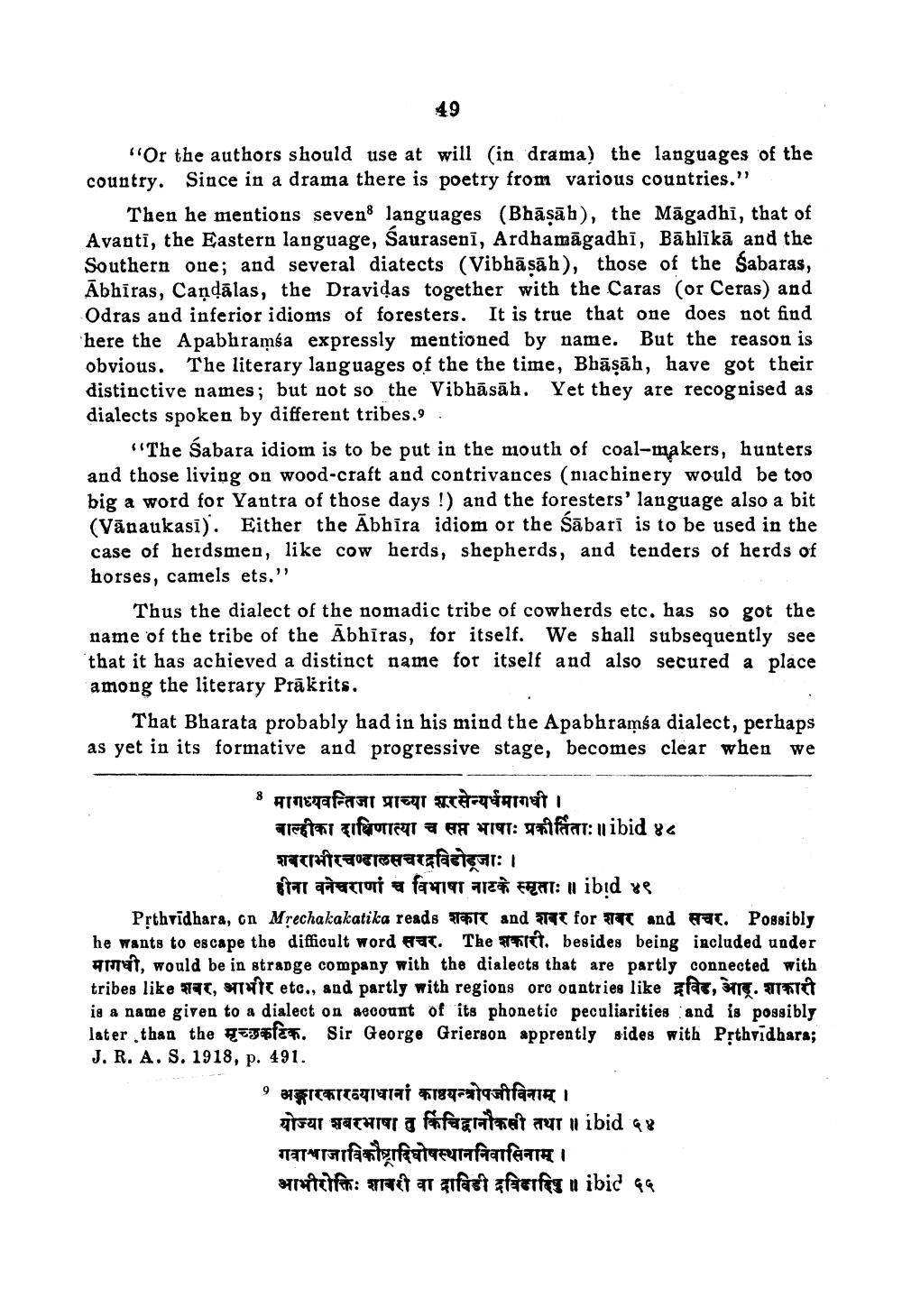________________
49
"Or the authors should use at will (in drama) the languages of the country. Since in a drama there is poetry from various countries."
Then he mentions seven languages (Bhāṣah), the Magadhi, that of Avanti, the Eastern language, Sauraseni, Ardhamagadhi, Bahlīkā and the Southern one; and several diatects (Vibhāṣah), those of the Sabaras, Abhiras, Candalas, the Dravidas together with the Caras (or Ceras) and Odras and inferior idioms of foresters. It is true that one does not find here the Apabhramsa expressly mentioned by name. But the reason is obvious. The literary languages of the the time, Bhāṣah, have got their distinctive names; but not so the Vibhāsāh. Yet they are recognised as dialects spoken by different tribes.9
"The Sabara idiom is to be put in the mouth of coal-makers, hunters and those living on wood-craft and contrivances (machinery would be too big a word for Yantra of those days!) and the foresters' language also a bit (Vanaukasi). Either the Abhira idiom or the Sabari is to be used in the case of herdsmen, like cow herds, shepherds, and tenders of herds of horses, camels ets."
Thus the dialect of the nomadic tribe of cowherds etc. has so got the name of the tribe of the Abhiras, for itself. We shall subsequently see that it has achieved a distinct name for itself and also secured a place among the literary Prakrits.
That Bharata probably had in his mind the Apabhramsa dialect, perhaps as yet in its formative and progressive stage, becomes clear when
we
8 मागध्यवन्तिजा प्राच्या शूरसेन्यर्धमागधी ।
बाल्हीका दाक्षिणात्या च सप्त भाषाः प्रकीर्तिताः ॥ ibid ४८ शबराभीरचण्डालसचरद्रविडोड्रजाः ।
हीना वनेचराणां च विभाषा नाटके स्मृताः ॥ ibid ४९
Prthvidhara, on Mrechakakatika reads शकार and शबर for शबर and सचर Possibly he wants to escape the difficult word . The . besides being included under am, would be in strange company with the dialects that are partly connected with tribes like शबर, आभीर etc., and partly with regions ore ountries like द्रविड, आ. शाकारी is a name given to a dialect on account of its phonetic peculiarities and is possibly later than theft. Sir George Grierson apprently sides with Pṛthvidhara; J. R. A. S. 1918, p. 491.
9 अङ्गारकारव्याधानां काष्ठयन्त्रोपजीविनाम् ।
शरभाषा तु किंचिद्वानौकसी तथा ॥ ibid ५४ गवाश्वाजाविकौट्रादिघोषस्थाननिवासिनाम् । आभीरोक्तिः शाबरी वा द्राविडी विदादिषु ॥ ibid ५५




